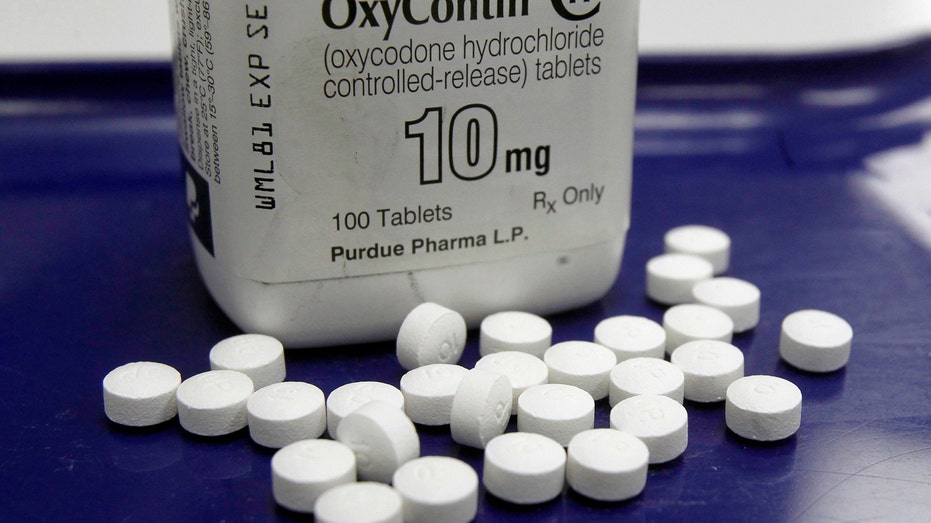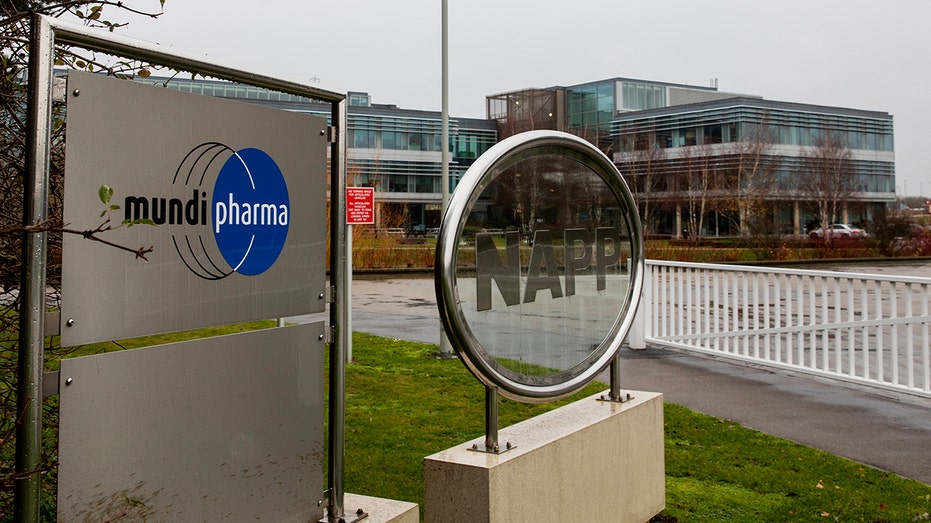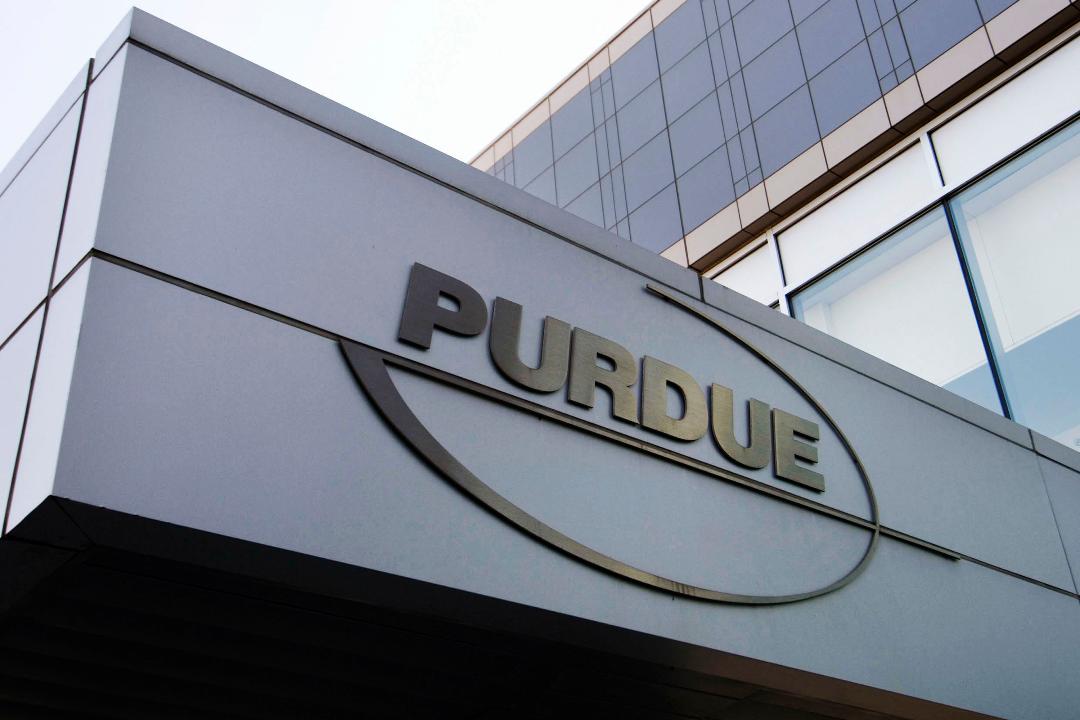OxyContin maker Purdue Pharma agrees to plead guilty in $8B opioid settlement
Deal does not release any of the company’s executives or owners — members of the wealthy Sackler family — from criminal liability
OxyContin maker Purdue Pharma has agreed to plead guilty to three federal criminal charges as part of a settlement of more than $8 billion, Justice Department officials announced Wednesday.
Purdue Pharma is expected to plead guilty to one count of dual-object conspiracy for defrauding the U.S. and to violate the Food, Drug, and Cosmetic Act and two counts of conspiracy to violate the Federal Anti-Kickback Statute. The criminal resolution includes a criminal fine of more than $3.5 billion and $2 billion in criminal forfeiture, plus a civil settlement of $2.8 billion.
The deal does not release any of the company’s executives or owners — members of the wealthy Sackler family — from criminal liability. A criminal investigation is ongoing.
The company is in the middle of bankruptcy proceedings, and a bankruptcy court would need to approve the settlement.
PHARMACIES SAY PRESCRIBERS BEAR OPIOID CRISIS RESPONSIBILITY
"The agreed resolution, if approved by the courts, will require that the company be dissolved and no longer exist in its present form," Deputy Attorney General Jeffrey Rosen said at a news conference.
OxyContin is a powerful prescription painkiller that experts say helped touch off the opioid epidemic that resulted in nearly 450,000 American deaths between 1999 and 2018, according to the Centers for Disease Control and Prevention.

This Feb. 19, 2013, file photo shows OxyContin pills arranged for a photo at a pharmacy in Montpelier, Vt. (AP Photo/Toby Talbot, File)
A spokesperson for members of the Sackler family told FOX Business they reached the agreement "to facilitate a global resolution that directs substantial funding to communities in need, rather than to years of legal proceedings."
"Members of the Sackler family who served on Purdue's board of directors acted ethically and lawfully, and the upcoming release of company documents will prove that fact in detail," the spokesperson said in a statement. "This history of Purdue will also demonstrate that all financial distributions were proper."
The spokesperson added that "no member of the Sackler family was involved in that conduct or served in a management role at Purdue" regarding Purdue Pharma's plea deal.
The settlement comes less than two weeks before a presidential election where the opioid epidemic has taken a political back seat to the coronavirus pandemic and other issues. But the deal does give President Trump’s administration an example of action on the addiction crisis, which he promised early in his term.
As part of the resolution, Purdue will admit that it impeded the Drug Enforcement Administration by falsely representing that it had maintained an effective program to avoid drug diversion and by reporting misleading information to the agency to boost the company's manufacturing quotas, the officials said.
A Justice Department official said Purdue had been representing to the DEA that it had “robust controls” to avoid opioid diversion but instead had been “disregarding red flags their own systems were sending up.”
Purdue will also admit to violating federal anti-kickback laws by paying doctors, through a speaking program, to induce them to write more prescriptions for the company’s opioids and for using electronic health records software to influence the prescription of pain medication, according to the officials.
Purdue will make a direct payment to the government of $225 million, which is part of a larger $2 billion criminal forfeiture. In addition to that forfeiture, Purdue also faces a $3.54 billion criminal fine, though that money probably will not be fully collected because it will be taken through a bankruptcy, which includes a large number of other creditors. Purdue will also agree to $2.8 billion in damages to resolve its civil liability.

This Dec. 12, 2019, photo shows a sign at the Mundipharma International headquarters at Cambridge Science Park in England. Mundipharma is the international affiliate of Purdue Pharma, the maker of the blockbuster painkiller OxyContin. (AP Photo/Leila
Purdue would transform into a public benefit company, meaning it would be governed by a trust that has to balance the trust’s interests against those of the American public and public health, the officials said. The Sacklers would not be involved in the new company and part of the money from the settlement would go to aid in medically assisted treatment and other drug programs to combat the opioid epidemic, the officials said. That arrangement mirrors a key element of the company's proposal to settle about 3,000 lawsuits filed by state, local and Native American tribal governments.
U.S. PURSUES NEARLY $13 BILLION OF CLAIMS IN PURDUE PHARMA OPIOID PROBES, SOURCES SAY
As part of the plea deal, the company admits it violated federal law and “knowingly and intentionally conspired and agreed with others to aid and abet” the dispensing of medication from doctors “without a legitimate medical purpose and outside the usual course of professional practice,” according to a copy of the plea agreement obtained by the AP.
The company is also required to cooperate with the ongoing federal investigation and potential other prosecutions.
But even before the deal was announced, it was facing resistance from state attorneys general, Democratic members of Congress and advocates who wrote Attorney General William Barr asking him not to make the bargain with the company and the family. They said it does not hold them properly accountable and they raised concerns about some of the details.
“Millions of American families impacted by the opioid epidemic are looking to you and your Department for justice. Justice for the sleepless nights spent worrying about sons and daughters trapped in the grip of substance use disorder, justice for the jobs lost and the lives ruined, and justice for the lives of loved ones lost to overdoses,” 38 Democratic members of Congress wrote. “If the only practical consequence of your Department’s investigation is that a handful of billionaires are made slightly less rich, we fear that the American people will lose faith in the ability of the Department to provide accountability and equal justice under the law.”
The Sackler family has already pledged to hand over the company itself plus at least $3 billion to resolve thousands of suits against the Stamford, Connecticut-based drugmaker. The company — but not the family — declared bankruptcy as a way to work out that plan, which could be worth $10 billion over time.
About half the states oppose that settlement and wrote Barr to ask him not to make the federal deal that includes converting Purdue into a public benefit corporation. They say it would be wrong for governments to rely on earnings from the sale of more OxyContin to fund programs to mitigate the toll of an opioid crisis wrought by prescription drugs as well as heroin and illicitly produced fentanyl.
GET FOX BUSINESS ON THE GO BY CLICKING HERE
With the terms of the Justice Department deal, the federal government gives a strong endorsement to the idea of a version of Purdue continuing as a “public benefit corporation.” If that plan does not end of being the heart of the reorganization through bankruptcy court, the U.S. could make Purdue pay it more, potentially unraveling any other settlement arrangement.
The state governments that oppose the settlements are pushing in bankruptcy court for documents that would spell out how much Sackler family members made from the sale of OxyContin over the years.
The Sackler family was once listed among the nation’s wealthiest by Forbes magazine. A 2019 court filing said they had made up to $13 billion over the years from the blockbuster drug, though a lawyer said they brought in far less after taxes and reinvestment in the company.
Until recently, the family’s name was on museum galleries and educational programs around the world because of gifts from family members. But under pressure from activists, institutions from the Louvre in Paris to Tufts University in Massachusetts have dissociated themselves from the family in the last few years.
CLICK HERE TO READ MORE ON FOX BUSINESS
It’s not the first time Purdue has admitted wrongdoing: The company and three executives pleaded guilty to federal criminal charges in 2007 and paid more than $630 million in a settlement. But after that, the nation’s addiction crisis only deepened.
This post has been updated with comments from a spokesperson for the Sackler family.
The Associated Press contributed to this report.




















